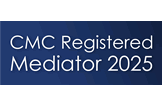
All About People
Need help to resolve your business, personal or employee conflicts & disputes?
Stay up to date with our latest news and workshops.

As mediators, we occupy a unique space: we are neutral facilitators, working with individuals and groups to navigate complex disputes. Yet, this neutrality raises challenging questions about how ethical theories shape our thinking and inform our approach to conflict resolution. Here’s a closer look at how some key ethical theories help illuminate the role of a mediator, while highlighting the complexities of applying these ideas in practice.
1. John Stuart Mill’s Utilitarianism
Mill’s theory emphasises collective welfare and the goal of maximising happiness while minimising pain. For mediators, utilitarianism underscores the importance of finding solutions that bring the greatest benefit to all parties. In practice, though, balancing competing interests and predicting outcomes can be challenging, especially when weighing short-term vs. long-term consequences. Can we, as mediators, reconcile opposing perspectives without influencing outcomes? Mill’s consequentialist perspective reminds us to weigh the broader impact of agreements while recognising that complete neutrality is often an aspiration rather than a certainty.
2. Adam Smith’s Theory of Self-Interest
Adam Smith’s ideas emphasise self-interest, which he argued is a driver of innovation and mutual benefit. Mediation inherently involves parties who may be focused on maximising their own interests, whether consciously or unconsciously. Our role involves guiding them to see how collaboration might actually serve those interests better. However, as impartial facilitators, we need to be cautious about guiding outcomes, allowing space for each party to authentically position their interests and needs. This often demands restraint and respect for individual agency, all while subtly encouraging a shared vision where possible.
3. Immanuel Kant’s Duty-Based Ethics
Kant’s emphasis on duty and the ‘categorical imperative’ challenges us to act based on universal principles. For mediators, this is a reminder that fairness, respect, and honesty must be upheld consistently. Unlike Mill and Smith, Kant’s non-consequentialist stance suggests that the right action isn’t dependent on outcomes, but on adherence to ethical duties. In mediation, this might translate to our obligation to remain unbiased and truthful, even when tempted to intervene for what seems like a ‘greater good.’
4. Ethical Relativism
Finally, ethical relativism suggests that what is considered ‘right’ varies by culture and individual perspectives. Mediation, especially in multicultural contexts, brings ethical relativism to the fore. We’re often mediating between parties with fundamentally different values, and while ethical relativism encourages open-mindedness, it also highlights the importance of not imposing our own values or cultural biases onto the process. At the same time, as mediators, we may need to subtly encourage parties to reflect on their ethical positions without overtly influencing their beliefs.
As mediators, we face the dual responsibility of facilitating without imposing. This challenge becomes particularly pronounced in different styles of mediation. For example:
What happens when unethical behaviour, such as power imbalances, surfaces in mediation? While our role is not to judge, we are ethically compelled to create an environment where each party feels heard and empowered. Sometimes, this may mean gently addressing power dynamics to ensure both sides can meaningfully participate. The line between support and interference can be fine; however, a commitment to fairness guides us in addressing these issues with integrity.
In the context of mediation, the increasing awareness around neurodiversity also raises essential ethical considerations. Neurodiverse individuals may have unique needs or face misunderstandings, particularly in conflict situations. Our role as mediators is to ensure fairness while respecting and adapting to these differences. Striking this balance requires a deep awareness of how different minds work and a commitment to inclusivity—an ongoing conversation within our field that is as important as ever.
In mediation, ethical reflection is essential. Revisiting these theories and re-examining our practices, perhaps through regular supervision or discussion with trusted colleagues, is invaluable. The complexity of these issues suggests that ethical discussions within mediation will continue to evolve.
I look forward to exploring these ideas further in future articles, as each mediation experience offers new insights into the balance between neutrality, ethics, and the ever-present drive towards constructive resolution.
For more information on how All About People can support you with mediation and conflict resolution, please get in touch.
Posted: 12th November 2024

Strategic Advice and Guidance for you and your organisation. Our accreditations:




Stay up to date with our latest news and workshops.